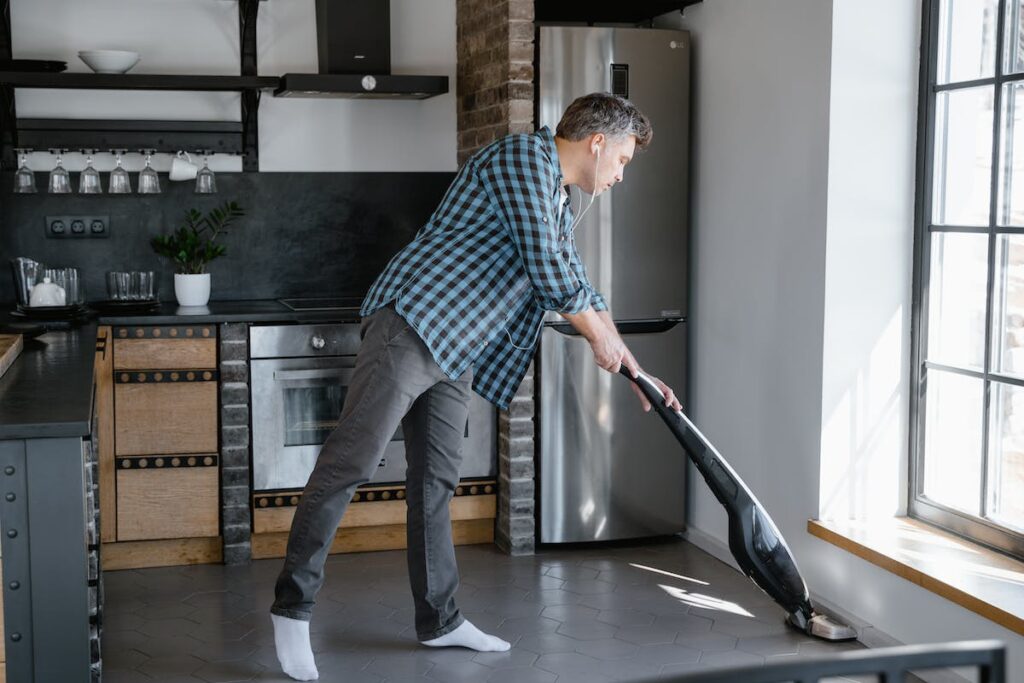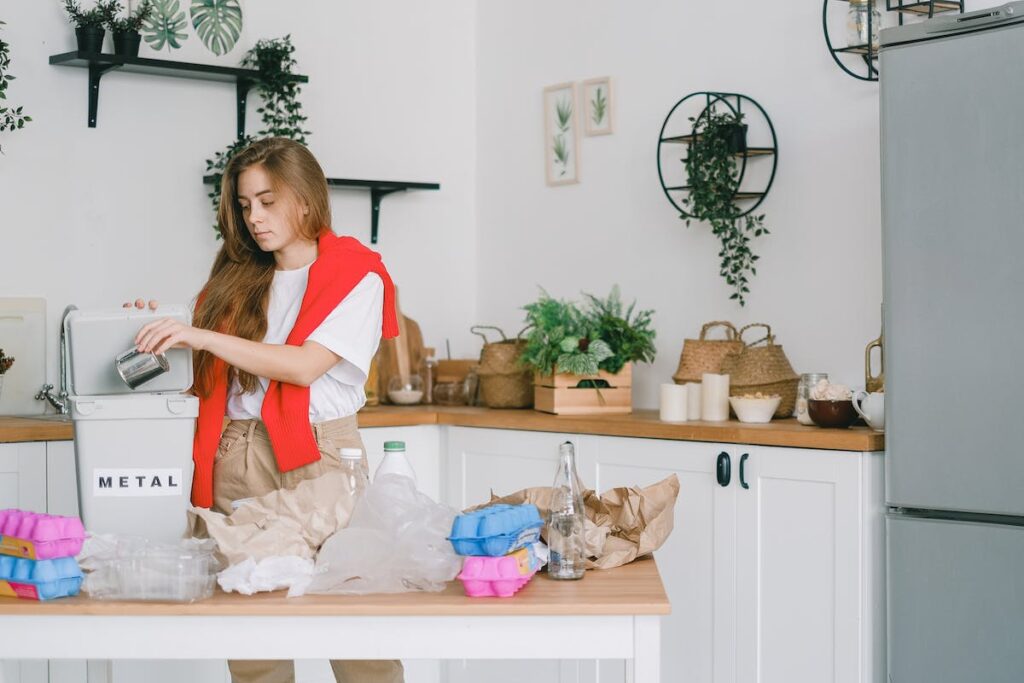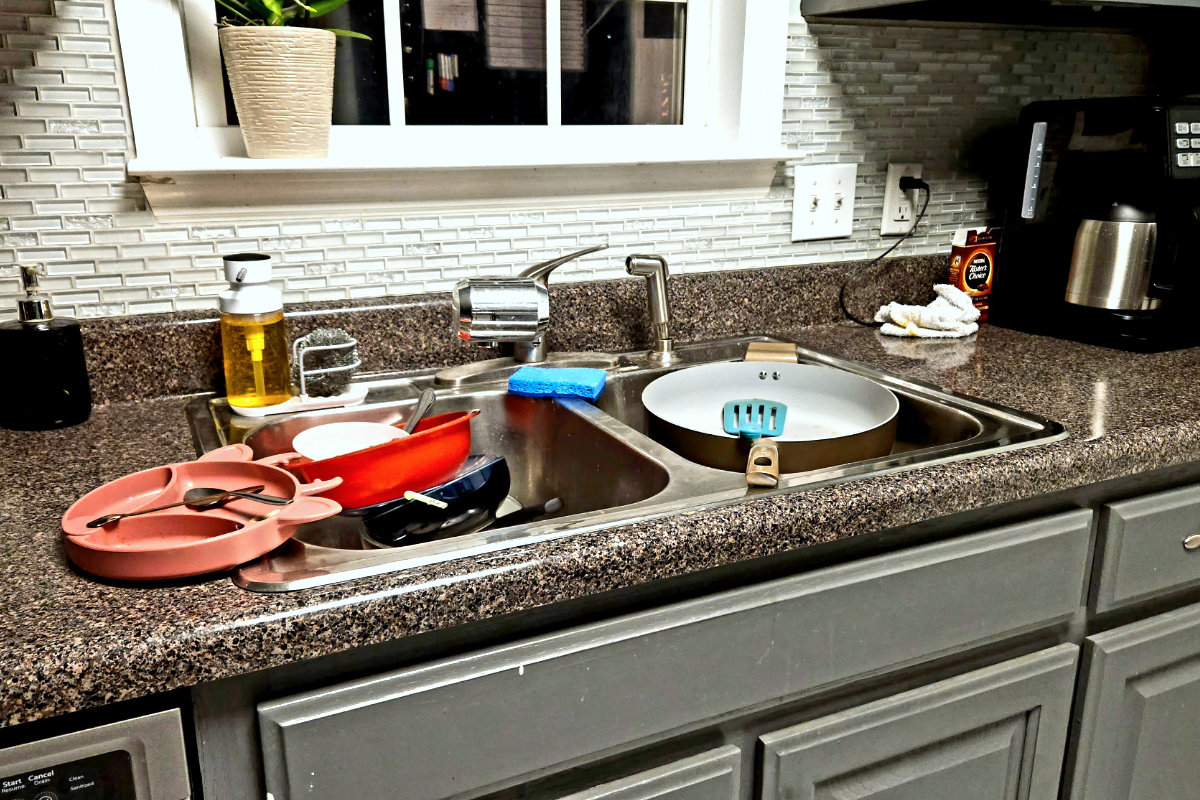If you are like me, you probably are constantly running around, trying to keep up with the chaotic demands of everyday life? and I don’t think we are alone! Many busy parents and professionals struggle to find the time and energy to maintain a clean and tidy kitchen. It’s a never-ending battle against clutter, dirty dishes, and sticky countertops.
Imagine this: your kitchen is an absolute mess. Dirty dishes are piling up in the sink, crumbs cover every inch of the countertops, and a mysterious sticky substance is coating your stovetop. It’s chaos. But here’s the thing – you’re a pro at procrastination. You have a knack for putting off cleaning until it absolutely cannot be ignored any longer.
But my dear friends. In this guide, I’ll share with you my tried-and-true tips for keeping a clean kitchen, even when your procrastination tendencies are begging you to put it off until the end of time or stolen your Saturday mornings. So, grab your sponge and buckle up – we’re breaking the cycle once and for all.
Tip 1: Try to Enjoy the Process
This article content
At first glance, you might wonder, ‘how can I possibly enjoy the process of cleaning a kitchen?‘ It might sound contradictory, but hear me out.
Make it more fun

Believe it or not, one of the ways to make this tedious task more enjoyable is by incorporating something that you love: music. Music has this magical ability of making even the most mundane tasks seem fun. For instance, while tending to the pile of dirty dishes, you could make it a ritual to play some soothing jazz or perhaps a lively pop playlist that gets your feet tapping.
On the other hand, when you’re cooking or cleaning the floors, you could opt for a different genre that fits the mood. An orchestral symphony might inspire creative dish ideas, or a pulse-pounding rock anthem could give you the rush of energy required for heavy-duty cleaning. The key is to make the experience enjoyable, and music is a wonderful tool to achieve it.
Celebrate Every Small Progress

Cleaning can often feel overwhelming, especially when you’re facing a mountain of dishes or a countertop strewn with crumbs. But remember, every large task is simply a series of smaller tasks. Each small task you complete contributes to the overall cleanliness of your kitchen.
So why not celebrate each little victory? For every small cleaning task you complete, take a moment to appreciate your progress. It could be as simple as wiping down a countertop, or as involved as deep-cleaning your oven. Recognizing and celebrating each step can make the entire process feel less daunting and more rewarding. After all, maintaining a clean kitchen is not about perfection, but progress.
So go ahead, give yourself a pat on the back with every task you tick off your cleaning list. You’re doing great!
Remember, the goal is not to dread the cleaning process but to find ways to make it enjoyable and satisfying. The more you enjoy it, the less you’ll feel like procrastinating, and the cleaner your kitchen will be!
Tip 2: Don’t Strive for Perfection

Perfectionism can often hinder our progress rather than help it, especially when it comes to cleaning. Striving to have every corner of your kitchen spotless at all times can lead to unnecessary stress and burnout. Instead, aim for “good enough.” or as my mom used to say, keep clean only where my mother-in-law watch it.
Keep in mind that a well-used kitchen is bound to have a few crumbs on the floor, some splatters on the cooktop, or a couple of dishes in the sink. Specially if you have a toddler in house, believe me. This doesn’t mean it’s dirty or undesirable, it just shows that the kitchen is being thoroughly utilized, which is its main purpose. Remember, it’s okay if your kitchen isn’t magazine-perfect all the time.
As long as it’s clean to the point you don’t feel stress in there and you feel comfortable in it, you’re doing just fine!
Tip 3: Begin with extremely tiny steps.
Start with small actions. And when I say small, I mean truly minuscule. The magnitude of the step depends on your current situation. For instance, my objective was to transition from a messy kitchen filled with unpleasant odors and dirty dishes to a tidy space where even a misplaced cup catches my attention. I will delve deeper into this topic later.
Tip 4: In the beginning create a process instead of a schedule.
When it comes to maintaining cleanliness, it’s more effective to establish a systematic process rather than just relying on a schedule. By creating a well-defined process, you can turn cleaning into a habit that doesn’t require constant decision-making. This way, you won’t have to spend time contemplating whether to clean or prioritize other tasks. Instead, it will become ingrained in your routine, ensuring a consistently tidy environment without having to give it much thought.
Begin your kitchen cleaning process with these steps
- Start with a habit that is already part of your daily routine. It can be as mundane as having a cup of coffee first thing in the morning. While waiting for your coffee to brew, utilize this time to quickly clean up the countertop or unload the dishwasher. Aligning a new habit with an existing one helps in making it stick and becoming a natural part of your routine. For example, at night before starting my night routine I will load the dishware, at least one dish. Then in the morning while brewing my coffee I will unload the dishwasher. At least one dish.
- Gradually expand your habit but don’t force yourself. After establishing the initial habit, for me took about two weeks to start increasing the cleaning without any effort from the dishwasher to the countertop. The key is to increase your tasks in small, manageable increments. This slow expansion prevents you from becoming overwhelmed and allows the habit to solidify. Over time, these small tasks will accumulate, leading to a noticeable improvement in the cleanliness of your kitchen.
- Keep your cleaning tools within reach and decide which ones are the best for you. The easier it is to start your cleaning task, the more likely you are to do it. By keeping your cleaning tools readily accessible, you eliminate the friction of having to locate and gather them each time you need to clean. For example, I was having some friction deciding if I should clean with a cloth or paper towel, then what cleaner was the best to use. Do whatever is easier for you in the beginning and you can experiment later.
So, if you’re ready to break the cycle of procrastination and have a clean kitchen without all the stress, remember these tips: make it fun, start small, make it part of your routine, don’t aim for perfection. It won’t be easy at first, but with consistency and determination, you can conquer even the messiest of kitchens. So next time you find yourself tempted to put off cleaning for another day (or week), remember that a clean kitchen means less stress and more enjoyable family meals. And who knows, maybe one day we’ll actually look forward to cleaning our kitchens. Cheers to a happy and tidy space everyone!


